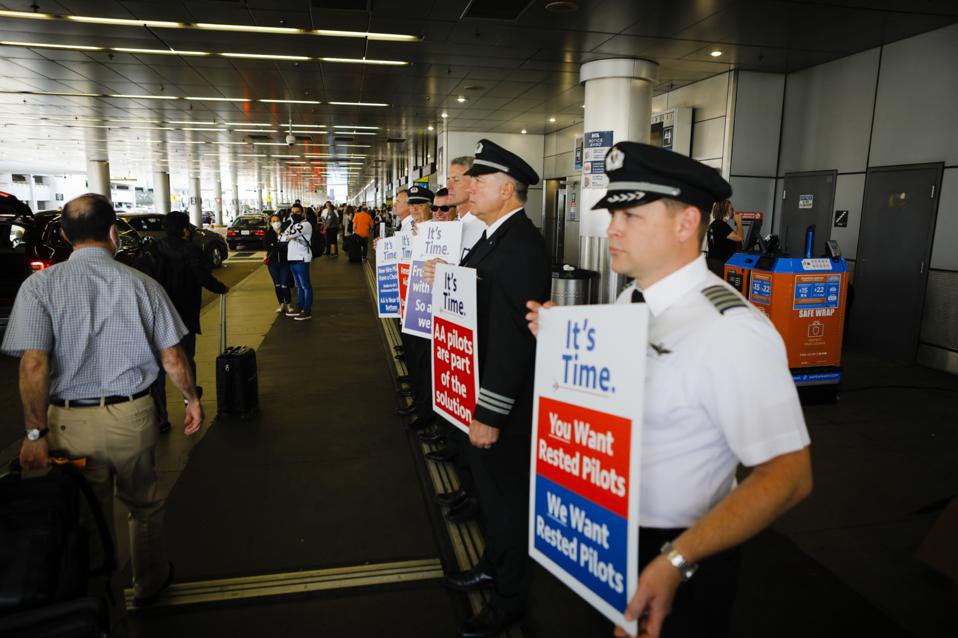American Airlines says that a new Delta pilot contract, which takes effect today, “profoundly changes the economics for the entire industry and that’s great news for American’s pilots.”
American pilots, still in negotiations for a new contract, say they expect to do better than Delta’s 15,000 pilots, who signed for a 34% increase in pay over the life of the contract, as well as improvements in quality of life, vacation and benefits for the carrier’s 15,000 pilots. The Delta contract becomes amendable Dec. 31, 2026.
“Who walks into negotiations saying ‘I just want to be like the next guy?” asked Dennis Tajer, spokesman for the Allied Pilots Association, which represents 15,000 American pilots.
American pilot contract talks appear to be on the fast track. Just an hour after the Delta chapter of the Airline Pilots Association announced on Wednesday that the new contract was approved, American declared, in a prepared statement, that “We look forward to reaching an agreement with APA quickly so that American’s pilots, too, can benefit from these meaningful enhancements to their pay and quality of life.”
Later Wednesday, in a message to American pilots, APA President Ed Sicher said American CEO “Robert Isom has told me that he is committed to expediting a deal. He needs to follow through on his stated commitment. There is no valid reason why we can’t have a new agreement in a month if management is sincere about expediting a deal.”
The two sides expect negotiations to continue largely uninterrupted through March. “Your negotiating committee and the company’s negotiating team have agreed to a disciplined and uninterrupted process through March to get a deal,” Sicher said. That way, “Come April 1st, we won’t be April Fools,” he said.
Tajer said the goal is not just higher pay but also improved working conditions. “The Delta template has to be adjusted to fit the needs of our pilots and the way our airline runs,” he said. “We know Delta money is coming. But we want American Airlines to also work smarter.”
Before the three global U.S. airlines entered bankruptcies in the early 2000s, they had contracts that protected pilots from flying to the maximum Federal Aviation Administration standards. Those protections were reduced in the bankruptcy contracts, Tajer said.
As an example, in general, pilots who begin work between 5 a.m. and 8 p.m. can fly for no more than nine hours in a day. They can be on duty (including airport sitting time) for no more than 12 to 14 hours, depending specifically on what time they start. With the ramped-up scheduling that became prevalent in post-pandemic flying, with high demand and fewer pilots, “They will build you to 11 hours and a few minutes,” right up against the maximum, Tajer said.
He referred to a sign he had seen held by a Delta pilot during a demonstration, “If I look tired, it’s because I am.”
Tajer said American has provided indications it is committed to quality-of-life improvements. For one, he said, in several recent public statements including Tuesday’s, American refers to such improvements. He said that David Seymour, American chief operating officer, “totally gets it.” Additionally, in July Sicher and Isom negotiated a letter of agreement awarding double time for holiday season flying. The plan contributed to American’s improved operations during the holidays. “We had an agreement for pre-plotted overtime and it worked, “Tajer said. “Now we want to de-risk the summer.”
Over time, it is likely that higher pilot pay will fuel an increase in the cost of air travel. Delta ALPA noted that its new contract includes more than $7 billion in cumulative increases over four years.

